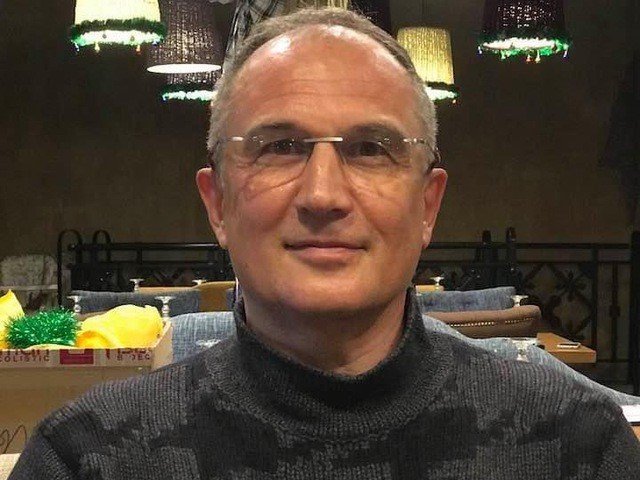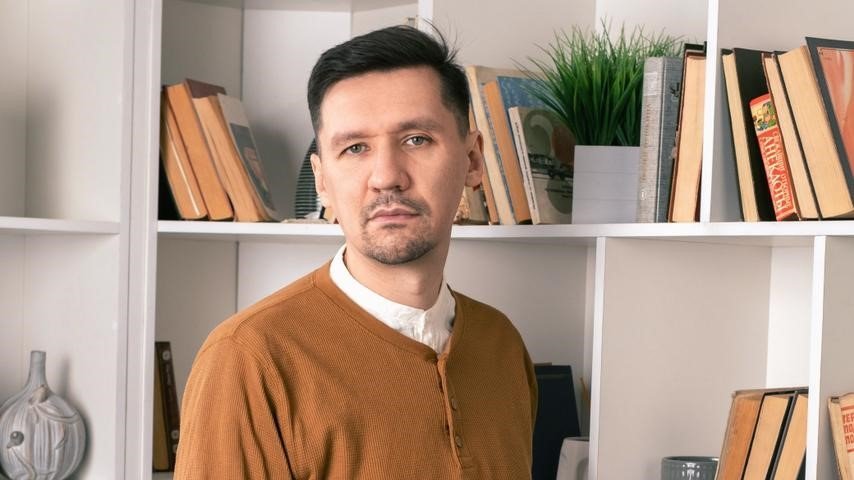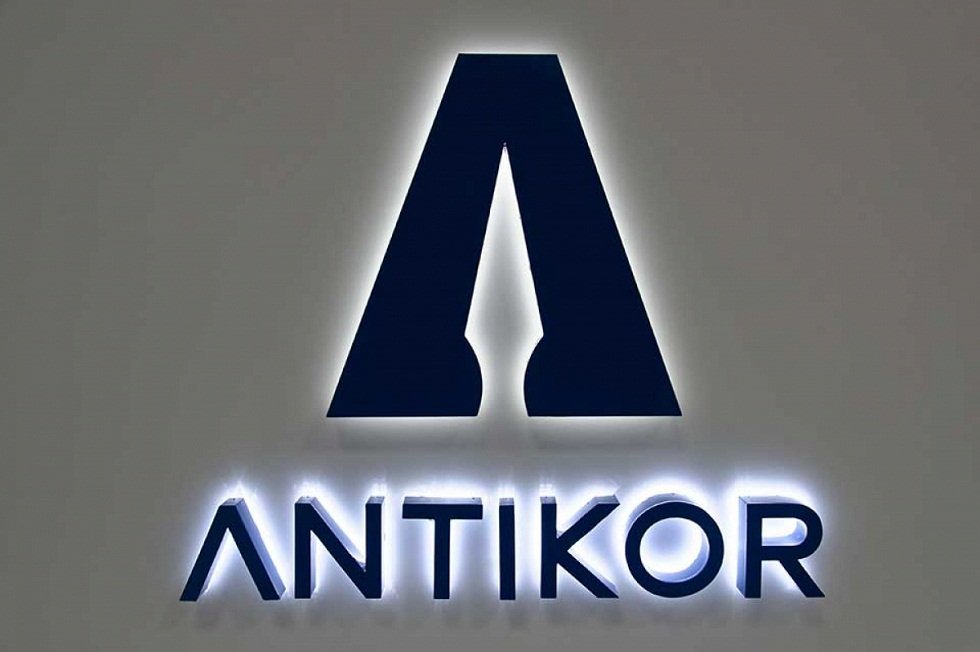Will "Poseidon" Come to The Steppes of Kazakhstan?
 Photo: Orda
Photo: Orda
At the end of February, the head of Kazakhstan’s Antikor, Askhat Zhumagali, held a meeting with Russian Prosecutor General, Igor Krasnov, in Moscow. Among other matters, the heads of departments discussed the possibility of using the Russian information and analytical system Poseidon or its analogs in the Republic of Kazakhstan. Orda.kz has looked into the matter.
The God of The Seas
The Russian media actively covered the Poseidon system in early 2022, after Russian President Vladimir Putin signed a decree on its implementation. The system contains information on whether officials comply with anti-corruption restrictions, prohibitions, and requirements, and also collects data on the assets of civil servants’ spouses and minor children.
The database receives information from federal authorities, the leaderships of Russian regions, the Central Bank of the Russian Federation, state corporations, and other government organizations. Data is not available to ordinary Russians: internal users of the system are officials and departments of the presidential administration of the Russian Federation, whereas external ones are mainly authorities.

Poseidon includes software and hardware complexes of the central segment, needed to automate anti-corruption activities, a multi-purpose segment, required to ensure user operation, as well as specialized software that translates into a machine-readable income declaration format. The main mechanism of the system is matching information on officials' property from databases of government agencies with official declarations.
It works with several databases combined into a single whole: the Federal Tax Service database, the Rosfinmonitoring database, the Federal Property Management Agency database, as well as information from social networks. Poseidon allows you to create a digital profile of the person being checked and find out if he has an intersection of interests, informal communication with people in which corrupt relations may be hidden, Kirill Kabanov, head of the National Anti-Corruption Committee of the Russian Federation, said in 2022.
In 2022, Kommersant journalists learned that at the time of signing the decree, Poseidon's prototype was already operating. It was called "Baikal-Poseidon" and was used in law enforcement agencies. The system was initially introduced to control the filling out of certificates of income by civil servants, but later its functionality was expanded, and expense tracking was added.
The structure of Poseidon is described as a "data lake”, i.e. a collection of information flows from many sources. This may be a tool that eventually exposes those involved in illicit activities.
Buoyant Corrupt Officials
According to the developers of the system, Poseidon should identify not only banal discrepancies between declared and registered property but also more complex cases such as an official regularly giving state orders to former classmates, a suspiciously expensive car, or expensive gifts. It would seem that Poseidon should have exposed dozens of Russian officials. Since 2022, there has been virtually no news about this system, nor was it involved in any high-profile investigations.
The direct coordinator of Poseidon in Russia is the presidential administration. The operator is the Federal Security Service (FSO), responsible for the President’s security. The Kremlin thereby controls the system at all levels. Its harboring of data on what is considered state secrets is one reason for this.
According to Russian political scientist Konstantin Kalachev, head of the "Political Expert Group", the FSO acts as the operator of Poseidon for security reasons. This ensures that no one enters the system and makes changes there. The Presidential Administration’s Anti-corruption Department supervises its work.

It sets tasks for coordination since it is engaged in checking the persons appointed to positions by Putin. This work is non-public, information is not broadcasted in the media, hence the lack of high-profile stories. The level of persons who may be subject to verification can be very high, so the system is closed. Few people have access to it, the system works on request, there is a certain algorithm of actions, explains Konstantin Kalachev.
The political scientist emphasizes that Poseidon is not a cure-all for corruption, but rather a data processing system. Someone has to upload this data, and a lot depends on how fully and correctly they do it and what tasks they set.
What we know about this system indicates selective checking based on a specific order. This is about the same as with the universal declaration: it helps to fight corruption if this declaration is truly universal and officials actually report on all their income. You know, this is a difficult matter, it has nothing to do with the developers of Poseidon and their creation itself. So, in my opinion, it is much more important how the anti-corruption policy will be implemented in Kazakhstan in general. And Poseidon and similar information systems can only become an auxiliary tool. It is impossible to do without such tools, but you should not expect too much from each individual tool either, Konstantin Kalachev noted.
According to Kazakh political scientist Valery Volodin, Poseidon has weaknesses that Antikor needs to consider while cooperating with Russian colleagues.
As is already known, the Russian Poseidon system is imperfect, it is not able to take into account data outside the "data lake" and, for example, does not extend to cryptocurrencies. Also, in the case of data centralization, there is always a serious risk of leaks and alteration, says Valery Volodin.
Secrecy is therefore not the only possible reason why we do not know much about Poseidon. It is possible that the imperfection of the system also facilitates bribe takers' "buoyancy".
Declaration
Political scientist Valery Volodin points out that the issue of fighting corruption remains a sensitive topic for Kazakhstan. Resolving this problem is a long-standing issue. Whether it is worth using foreign technology is debatable.

By the end of 2023, Kazakhstan, although it improved its position, still found itself among the most highly corrupt countries according to Transparency. At the same time, it is important not to forget that a huge number of corruption facts are simply not reflected in official statistics because bribery in Kazakhstan is characterized by a high level of latency, Valery Volodin points out.
At a briefing by the Anti-Corruption Agency on March 6, our journalists asked the official representative of Antikor, Arman Tleukyenov, why Kazakhstan is considering Poseidon. Tleukyenov replied that the Russian experience is being considered as part of the implementation of the concept of anti-corruption policy for 2022-2026.
This system in Russia is used to identify discrepancies in information reflected in declarations and state information systems. Why are we studying the experience and the algorithm of this information system itself? The relevance of this issue for Kazakhstan is primarily due to the phased introduction of universal declaration. Universal declaration also awaits us, and studying the experience of using such information systems will be useful in practice for our country, Arman Tleukyenov said.
The Antikor representative confirmed that acquiring Poseidon from Russia is not on the table yet. The agency is currently only studying the algorithm of the system to assess the possibility of using such technology in Kazakhstan. Meanwhile, domestic analogs of Poseidon already exist. They are used in the Ministry of Finance. Antikor assured that there would be no financial repression caused by learning about this from Russia.

We are studying (the Poseidon system — ed.) with the aim of further possible application of some algorithms in Kazakhstan. This will not cause any financial repression. First and foremost, it is necessary for our economy, explained Arman Tleukyenov.
We contacted The Ministry of Digital Development, Innovations and Aerospace Industry with a question about whether the Ministry or its reporting agencies had received any requests or instructions for the development and implementation of a domestic analog of the Poseidon system. At the time of publication of this material, the Ministry did not give us a specific answer.
Toxic Pool of Corruption
The Russian system for tracking corrupt officials is not the only one of its kind. A similar database exists in China, and a similar system is used by the NSA (US National Security Agency). The possibility of using blockchain technology to counter corruption is being considered in Denmark. Why did Antikor choose Poseidon then?
Russia and Kazakhstan have very deep ties and a high degree of integration. Whether someone likes it or not, this is inevitable: countries are located next to each other and are simply historically and geographically destined for constant interaction. Therefore, it is quite logical that when there is a relevant issue for both countries, one country becomes interested in this tool. Another thing is how effective this tool really is, how applicable it is. Specialists should monitor and study here, says Konstantin Kalachev, a Russian political scientist and head of the "Political Expert Group.”
Close ties between Kazakhstan and Russia are undeniable, as well as the existence of a common post-Soviet legacy, i.e. systemic cronyism, ubiquitous bribery, and officials’ nepotistic tendencies. A common language of communication also fosters sharing experiences.

Kazakhstan turning to its northern neighbor for help in the fight against corruption after the most famous Russian corruption fighter, Alexei Navalny, died in prison, is indeed notable. Such a gesture can be a signal that fighting corruption outside the political system and without explicit approval is more valuable for oneself, whereas searching for other people's illegal assets in a toxic pool of corruption can become troublesome.
As Konstantin Kalachev notes, it makes no sense to use Poseidon against the opposition in Russia. The opposition in the Russian Federation has already been virtually defeated. Yet, the system doesn't care who is being checked. Its algorithm allows you to collect any data and information about the intersection of interests for a specific person. It is a tool for the head of state.
I believe that any leader wants to know everything about his subordinates. And how they manage this information depends on the degree of goal-setting and tolerance for human weaknesses, says Konstantin Kalachev.
Political scientist Valery Volodin finds anti-corruption policy's dependence on the will of a leader alarming. He points out that Poseidon and its analogues are convenient for analyzing information about income, expenses, and property of officials and should help in identifying embezzlers. However, in all countries where information systems are used to reveal bribes, not only in Russia but also in China, and even in the United States, the authorities are prone to authoritarian control.
When it comes to state information security, it is hardly worth increasing the dependence of Kazakhstan’s civil servants on Russian special services. Especially before the referendum on the construction of nuclear power plants and the selection of contractors for a large number of republican projects. The government should start actively lobbying for the national interests of its country. And ask the question: how much does sovereign Kazakhstan need a dubious product of the opaque modern Russian state that seeks to maximize hiding data of its loyal officials and expose the data of all dissenters, Valery Volodin emphasizes.
Russian political scientist Konstantin Kalachev believes that any experience of fighting corruption, both positive and negative, is worth analyzing. Thus warranting analyzing the initiatives of neighboring countries.
We need to learn not only from other people's successes but also from other people's mistakes. And Poseidon is just a tool. The effectiveness depends on who uses it and how, Konstantin Kalachev believes

The main initiative in the fight against corruption should belong to the citizens themselves. According to Valery Volodin, Kazakhstani society is becoming less tolerant of bribe-takers and budget plunderers.
The economic development of Kazakhstan and, as a result, the social well-being of citizens has been, is, and will be in their own hands. And it depends on how much Kazakhstanis demand honesty and justice from their government, Valery Volodin sums up.
The anti-corruption reforms that are currently being carried out in Kazakhstan are largely society's achievement. Only Kazakhstanis will have to face how to rid the country of corruption and whether “Poseidon" will be in the Kazakh steppes.
Original Author: Nikita Drobny
DISCLAIMER: This is a translated piece. The text has been modified, the content is the same. Please refer to the original piece in Russian for accuracy.
Latest news
- President Toqayev Sends Nazarbayev Birthday Wishes
- Toqayev Appoints New Ambassadors in Series of Diplomatic Changes
- Unidentified Object Resembling Drone Found in Atyrau Region
- Trump and Zelenskyy Discuss Air Defense Needs
- Rapper Qurt: Wife Withdraws Statement in Court
- Head of Azerbaijani Cultural Autonomy in Moscow Region Reportedly Loses Russian Citizenship
- Defense Secretary Hegseth Paused Ukraine Weapons Shipment Despite Pentagon Assessment — NBC
- Prosecutor General's Office Confirms Detention of Kozhamzharov's Associate in Torture Case
- State to Scale Back Role in Competitive Sectors
- Uzbek Banker Kidnapped in Paris
- Former Financial Police Officials Reportedly Detained, Case Concerns Torture
- Progress MS-31 Launches from Baikonur Carrying Fuel, Water, and Scientific Cargo
- Two Men to Face Trial for Homicide of Missing Atyrau Woman, Body Not Found
- Russia Launched Massive Strike on Ukraine Following Trump–Putin Call
- Rapper Qurt Accused of Abuse by Wife
- Pavlodar Region: Rescuers Seek Lower Retirement Age Amid Strain of Risky Work
- Businessman Vagif Suleymanov Detained in Moscow
- Kashagan Field Reaches One Billion Barrels of Oil Extracted
- Lenin Street in Osh Renamed After 19th-Century Kyrgyz Leader
- New Uranium Plant Launched in Turkistan Region with French Partnership

